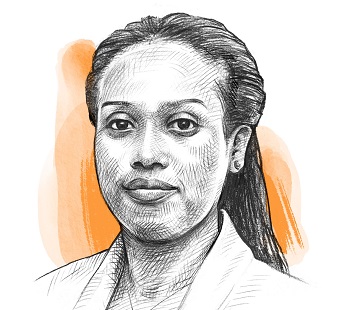TELEMA – Support Project for the Productive Inclusion of Vulnerable Populations in the Republic of Congo
Objective
-
EUR 2.265mBUDGET
-
01/04/2019PROJECT START
-
52 monthsDURATION
The TELEMA project stems from the Republic of Congo’s National Social Action Policy and aims to promote the economic and productive inclusion of vulnerable populations. The project benefits from financing from Agence Française de Développement (AFD) under the second Debt Reduction-Development Contract (C2D) and was launched in April 2019. It is implemented by the Ministry of Social Affairs and Humanitarian Action of Congo (MASAH), with technical assistance from Expertise France (helping communities set up projects, skills assessments, etc.).
More information on Ideas4Development Seen from Congo: “Social work must be innovative and committed to lasting change”
A first phase made an assessment of the situation and ensured the project was in line with the concerns of MASAH. This led to the design of a 52-month project whose purpose is to create a real platform and structural mechanisms to promote the implementation of the National Social Action Policy, which targets the economic integration of vulnerable populations.
Three areas of operation for TELEMA
-
Sustainably build the capacities of social workers
The objective is to give actors in social action the means to provide an effective and sustainable response to the demands of the population, at both central level and in the decentralised services of the Ministry of Social Affairs and Humanitarian Action.
To ensure the medium and long-term sustainability of this action, the TELEMA project is supporting the institution responsible for training social workers, the National Institute for Social Work (INTS). The TELEMA project works in synergy with other programmes to contribute to building the capacities of this institute, which was set up in 2015, with a focus on training trainers who teach at INTS.
-
Develop pilot projects in 21 social action centres
TELEMA aims to provide long-term help to the target individuals and groups of the Ministry of Social Affairs and Humanitarian Action towards a sustainable way out of poverty.
To this end, pilot projects will be developed in Brazzaville, Pointe Noire and in the Pool Department for some 2,000 beneficiaries. They will gradually test systems in a dozen or so social action communities to provide long-term help to vulnerable people towards employment or self-employment.
-
Develop a national information system for social action
The objective is to set up and establish a national information system for social action. This tool will allow data on social action to be collected and used to monitor, evaluate and manage the actions implemented by the ministry and its services.
|
In Ignié, in the Pool Department in the south of Congo-Brazzaville, the services of the Ministry of Social Affairs and Humanitarian Action have assisted women project initiators with the development of their economic activity. “We’ve been given the opportunity to follow training courses where we learned new growing techniques”, explains Angèle Tikati, a woman entrepreneur in Ignié. This project will serve as a model for TELEMA, which aims to establish a link between economic development and social cohesion strengthening.
|
Collective action for a way out of poverty
The TELEMA project works simultaneously in the fields of social and economic inclusion. In addition to the support provided by social workers on specific aspects, it is essential to mobilise mentors and volunteers for the various social positions in order to collectively look ahead to a more harmonious common future.
• Support from social workers for vulnerable populations: the TELEMA project is intended to help vulnerable populations towards a sustainable way out of insecurity. To this end, it focuses on their expectations, their hopes and their desires. It helps them set up viable projects and tries to forge new ties between members of society.
• A mentorship and volunteer programme: people who are not in need have the opportunity of actively contributing to the development of social cohesion through this programme. Since its launch, people from various social backgrounds have expressed their willingness to get involved in the process, which gives a clear sign of the potential for collectively building ways of living together. By creating opportunities for meetings between the various components of society, the project manages to develop and diversify the social relations of the target populations.
|
• Co-construction: validation of the project objectives and implementation processes by all the partners; • Co-implementation: establishment of a common process for the implementation of activities; • Co-evaluation: common definition of evaluation criteria (quantitative, qualitative, observable and identifiable), the evaluation schedule during and at the end of the process and the conditions for carrying out these evaluations. |


 Women entrepreneurs in Ignié, a model project for TELEMA
Women entrepreneurs in Ignié, a model project for TELEMA